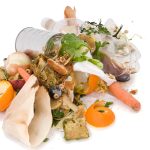House of Representatives Introduces Food Date Labeling Bill
An estimated $900 million worth of inventory was pulled from U.S. shelves due to date code expiration in 2001. Much of this loss can be attributed to the misinterpretation of “sell by” and “best by” dates on food labels as expiration dates. With the public perception that food is not safe for consumption after the date printed by the manufacturer, retailers often pull products from the shelves as sell by dates are looming.
Adding to date labeling confusion is the lack of federal governance or industry standard practice. Federal law does not require date labels, nor does it regulate the sale of goods past a labeled date. The FDA does provide a Food Code outlining requirements for food dating of shellfish, refrigerated, ready-to-eat food, and potentially hazardous foods. This code is voluntary and is only regarded as law if a state adopts it. Regulations vary widely by state, with 41 states enforcing some form of date labeling regulations, and nine that do not require date labels at all. Additionally, some states regulate the sale of food products after labeled dates while others do not.
Confusion surrounding dating of food products and the food waste attributed to the issue have led some to call for a universal dating program that establishes a standard language for quality-based and safety-based labeling.
The Food Date Labeling Act of 2016
In an effort to reduce the billions of pounds of food waste in the United States, The House of Representatives introduced the Food Date Labeling Act of 2016 (H.R. 5298) May 19, 2016. The bill focuses on both uniform food date labeling and public awareness. It states, “Consumer education and standardized date labeling are the top 2 most cost-effective strategies for reducing food waste, by economic value per ton diverted.”
The bill calls for a uniform quality date label phrase of ‘‘best if used by,’’ if the labeler (producer, manufacturer, distributor, or retailer that places a date label on food packaging) includes a quality date label on the package. Quality date labels are voluntarily printed on food packaging and intended to communicate the date before which product quality will be best. Food is still acceptable for consumption after this date. The use of a quality date label remains under the discretion of the labeler.
The bill also calls for a uniform safety date label phrase of “expires on” to be printed on ready-to-eat products. The safety date as defined by the act, “signifies the end of the estimated period of shelf life under any stated storage conditions, after which the product may pose a health safety risk.” Ready-to-eat products, those typically edible without additional preparation, include poultry products as defined in section 4 of the Poultry Products Inspection Act, meat products as defined in section 1 of the Federal meat Inspection Act, egg products as defined in section 4 of the Egg Products Inspection Act, foods typically eaten raw and foods eaten without further processing to minimize biological hazards. In addition to the specific foods outlined in the bill, the act the Secretary of Agriculture and the Secretary of Health and Human Services will determine high-risk read-to-eat foods that must comply with the labeling regulation.
The act touches on consumer education stating that no later than 1 year after the date of enactment of this Act, the [Secretary of Agriculture and the Secretary of Health], acting jointly, shall provide consumer education and outreach on the meaning of quality date and safety date food labels.” The text does not elaborate on public outreach or educational methods.
Next Steps
At this time, the Food Date Labeling Act of 2016 has not been passed by the House of Representatives or the Senate. While legislation regarding food dating practices may lead to reduction in food waste, there are other methods available to grocers and retailers. A food recycling program is recommended to reduce waste, operational costs and the economic impact of the store.
Quest Resource Management Group (Quest) — a subsidiary of Quest Resource Holding Corporation (NASDAQ: QRHC) — helps companies eliminate food waste with turnkey recycling programs across the nation. To learn how your company can reduce food waste.
Feature image credit: NanD_PhanuwatTH/Shutterstock








